Rapper Sarkodie began his career pushing uphill. A shitty childhood and beginning as an underdog rapper he quickly adopted and translated a musical maturity that has made waves in the rap game in Ghana and beyond. Born as Michael Kwesi Owusu Addo and raised in the infamous Tema neighborhood, he is a top-notch and award?winning rapper with just two albums to his credit yet has anchored his voice in the annals of the music industry
His hard work has enabled him to perform with notable acts including Ludacris, Busta Rhymes, Big Narstie, Miguel, Chipmunk, T Pain, Trey Songz, and Mavado, amongst others, Sarkodie is a million-selling rapper and one of Africa’s premiere musical exports.
Ghettoblaster recently caught up with Sarkodie to discuss his roots, mentors, challenges, and goals.
When did you realize you had an affinity and aptitude for making music?
I don’t think I could be too specific, but I know that I was pretty young. I had a very rough beginning living with some family relative that put me through some dark times and the music tended to be like a therapy for me, you know to vent what I was feeling deep within. So I just had lots of emotion to express and I fell in love with music because it dealt with words and you just put them together to create a masterpiece, so I think it was a pretty young age, very young.
Okay, so it was something that was kind of innate with you from the beginning, yeah? Can we talk about that area where you grew up, or just keep it general?
Yeah, we can talk a little bit about it. I did a song called “Mile 7 Saga” and Mile 7 was actually where I was living, it was where my dark times were. Till now I keep getting flashbacks of how it used to be and that is where music started for me, you know, cause I had no idea where mom and dad was and I was living with this woman that I really don’t like to speak bad about her but it was a very bad situation that I was in. As a kid, I didn’t know, but I felt it was wrong so my only therapy was through music and that’s when I started writing.
Were you mentored by anyone when you realized this was something you wanted to pursue, if so what did they do to help you achieve some of your earliest goals?
I call it like a ghost mentorship because I didn’t have direct contact with them but I looked up to them. No access to meet them but these two people, there’s one guy in Ghana that I still look up to. His name is Obra Four. He is a great inspiration to me because I love his stories through his music. He is my all-time favorite Ghanaian rapper. He inspired me but I had no idea how it would be possible to meet him. My ultimate was the one and only, Jay-Z, who I have not met yet but I don’t even need to meet the person for the person to mentor me. What they need to do is keep winning, and the more they win, I feel like I can do it as well. So these two guys played a major role in my career.
When was it that you realized that hip-hop was the right vehicle for your expression as an artist? Was that always the genre that inspired you?
My family is very musical, so ever since I was really young it wasn’t just hip-hop. I love any kind of music. If it’s great, I’m definitely going to listen to it. But hip-hop came in when I was really young and I could relate to it with you know, the swag, and I have stories to say and rap is like talking. It was the best genre for me. I think immediately when I fell in love with writing music it just started with rap.
What were the major things you were hoping to accomplish as you were writing for and making Highest?
The whole project was for everyone in this world who is winning. I was going for people that have been able to achieve the things that they really wanted to achieve so they can relate to it. It doesn’t matter what you’re doing. It can be music or fashion or your office job, anything. Winning is a state of mind and that you are on top of your game. That was my goal, trying to have people who are leading to relate to the record.
What were your biggest challenges with this record?
I wouldn’t say just a challenge to this record but with my whole career there’s this, not rule but I don’t know what to call it, that people feel the moment they don’t understand what you are saying, it’s going to have an effect on the impact you have on people. I don’t doubt it, but I believe in music being a universal language. The challenge would always be that I want the whole world to understand it. Even the people I look up to don’t have the whole world understanding them like people in Ghana don’t understand what Jay-Z is saying. So it’s just me channeling that energy and if it’s great, it’s great and I’m just going to go for it. I wish even someone like you can listen word to word and just understand it. That’s a challenge but not too much of a challenge because I have thought about it over the years and felt like I have to stay true to myself.
Would you consider translating on one of the songs or do you think it loses something?
When I shoot the music videos, an idea of mine is to put subtitles on the video to help people understand. I think of it before putting it out but I don’t know why we haven’t yet, but that is definitely something I am going to do so it makes it easier for someone watching, and I’m actually working on doing that for the next one.
What moments on the record are you most proud of?
I would say the title record called Highest. When I was doing that, what I say in that song is what the album stands for. That particular joint sums everything up for me. When you make money you are able to feed your family, you qualify to be the highest. If you are able to sustain that for a minute and be consistent for a long time, you can acquire that title of being the highest. In the rap I said African rap is actually on my lap right now and I do what I want to do with it and if you want to take it you are going to have work ten times harder. I wrote that song with my daughter in the studio as well and that is the whole summary of how I felt.
Highest features several major collaborations with local and international artists. Were there any that inspired you for some reason or another?
To be real, I didn’t have the chance to have all of them in the studio because of timing. But one song itself is inspirational it’s called, “Glory,” and it talks about life and people telling you what you can do with my Nigerian friend called Young L and that was actually the only one where we both just crashed in the studio and it’s very inspirational. It was very emotional that day in the studio because the beat is very soulful and it’s sung from the heart.
You sold out the Hammerstein Ballroom in NYC. I imagine this was an accomplishment that has you reeling…
I was grateful and I felt blessed, but I could see it happening because I think the fan base grew organically over the years and people joined this movement over time. It’s great because I had a feeling I could do it so I was expecting to see numbers of people coming in and they actually did. I’m proud of myself that I have been able to do all of these shows and be successful with it but it’s not easy. Especially, coming from Africa and doing rap. It’s pretty hard to make it here. You might be considered an artist by the whole movement but you wouldn’t have all eyes on you in that situation you might have to be on a multi-artist contract and then you can experience having these numbers when you have a lot of artists and you involved. Just seeing you headlining your own show and have people show up, I felt blessed and the same thing happened at the Apollo in New York and I will be in London as well so I felt blessed. I feel like our team has done pretty well for a rapper from Africa.
And “Pain Killer” has millions of streams to date? What was it like watching that blow-up?
I kind of knew “Pain Killer” was going to be a huge record. Being in the game for at least a good amount of time, I have an ear for spotting a huge record. My whole career has not really been built off of having number ones; it has been built off my story. My strength is not really doing big commercial songs, but that record was sent to me by Runtown, the guy who wrote the hook, and when I heard it I was like we need to do this next week I think it’s going to blow up. I knew it had that global sound that would resonate with anybody that would listen to it. It was a great time and Runtown was having a great year since he had three or four big songs as well.
You’ve released six videos from the album so far. How involved were you in the concept and art direction for those? How do they complement your musical vision?
There are certain things that I would let the director know what I stand for. Obviously, I wouldn’t dance too much in my videos. I’m a rapper and I try to keep it low key so there are a few things I choose to let the directors know about me first so they know how to move forward. I need to know who I’m shooting with, I’m very selective about that, but I like the director to take charge because he is a dope person already. I just try to make it about how the concepts should be but everything else is the director.
How important do you think now it is to have a music video go with a song? Do you think it actually reflects on how well the song will do?
When you hear a good song you know it’s good like you love it when you hear it but now I think thousands of songs come out every hour because of the internet. So for you to say this is serious you need to present it to the people in a way that shows you believe in it. Also, visuals make it easier to understand what I am saying. That’s the only way to explain a song to an audience and that’s why I shoot many videos.
Will you be doing extensive touring in support of the album?
We’ve lined up stuff to do while on the road to push the album to the masses and any opportunity given to our team we are going to take it, but we have a list of towns we want to hit on the road.
What are your loftiest goals for your career? How do you hope you are remembered someday?
My goal is to have my music affect people in a very, very, very positive way. I wish I can change the state of minds of a lot of people and make them aware of certain things they have taken for granted but ultimately for Sarkodie I want to stand for something that the youth can look up to and have hope because I came from that end and I came from a place where you could easily give up.
Sarkodie – Twitter | Instagram | Facebook | Spotify | Soundcloud


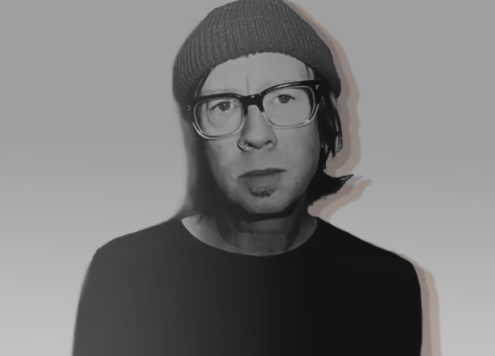
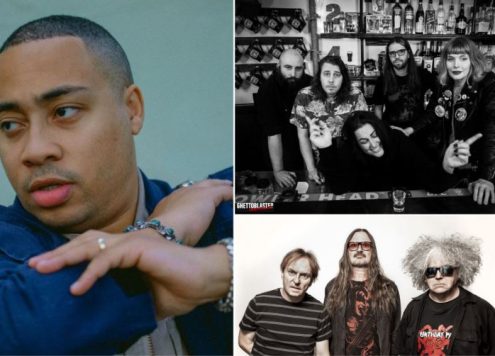
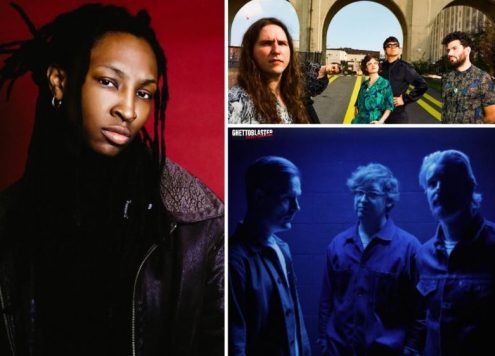


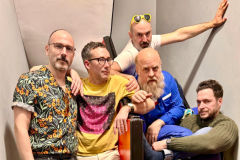

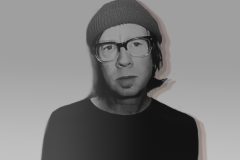

Social Media